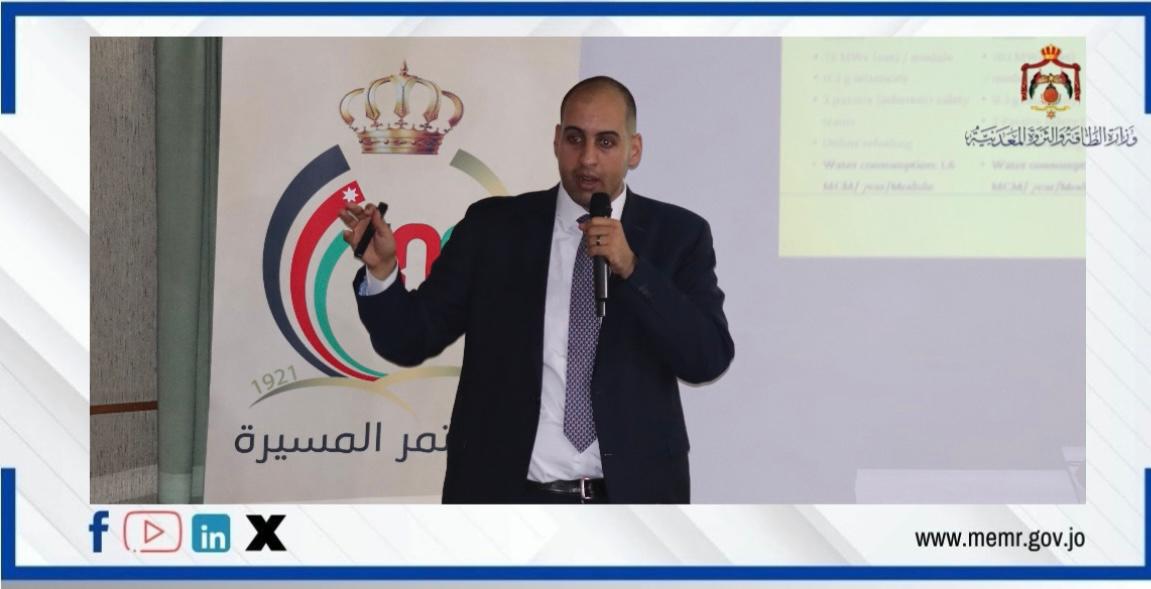
Photo Gallery
July 16, 2024 - The Ministry of Energy and Mineral Resources, in partnership with the Jordan Atomic Energy Commission, held a specialized lecture to discuss nuclear power reactors and their positive impact in addressing the challenges facing the energy and water sectors in Jordan.
During the lecture, the Commissioner of Nuclear Power Reactors at the Commission, Dr. Khaled Al-Khasawneh, reviewed the Commission's aspirations to use small modular nuclear reactors (SMRs) and introduce nuclear energy into the national energy mix, stressing that nuclear energy is one of the best low-carbon energy sources in the world and can be used in many fields, and that technical evaluations and economic feasibility studies are currently being implemented for a number of small modular reactor designs, and detailed feasibility studies are being conducted for the use of nuclear energy in desalination and pumping water in Jordan, referring to the studies that the Commission is preparing to integrate small modular nuclear reactors with the national carrier project.
Al-Khasawneh discussed the mechanism of operation of nuclear power reactors and their future contribution to reducing energy production costs compared to traditional energy generation sources that constitute additional financial burdens on governments. He indicated that many small compact reactors were designed for multiple purposes and uses in addition to electricity production, such as desalination of seawater and hydrogen production, which adds to their benefits and increases their efficiency.
He pointed out the advantages of this type of reactor in terms of its low need for cooling water compared to traditional large nuclear power reactors, which results in wider options for choosing the reactor site away from water sources.
Al-Khasawneh reviewed the most important main axes that make up the Jordanian nuclear program, supporting and complementing the Jordanian nuclear power reactors project, represented by the Jordanian nuclear reactor for research and training and the uranium exploration and mining project, pointing to the essential role of the Jordanian nuclear reactor for research and training - which is located within the campus of the Jordan University of Science and Technology - in building, qualifying and training new generations of researchers, scientists and nuclear engineers, in addition to its use in producing radioactive medical and industrial isotopes, most notably the iodine-131 isotope, which is being distributed to the Kingdom’s hospitals, medical centers and clinics specializing in nuclear medicine, as it is used in diagnosing and treating cancer according to approved pharmaceutical requirements and specifications.
Regarding the uranium project, Al-Khasawneh added that experts estimate that the quantities of uranium in the central Jordan region are estimated at about 41 thousand tons of yellow cake, with the possibility of using it as a source and primary fuel for nuclear power reactors in Jordan. He explained that the Jordanian Uranium Mining Company is managing the uranium project in central Jordan and is working to explore and develop the optimal processing of uranium ore.